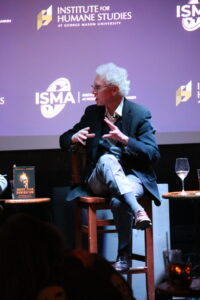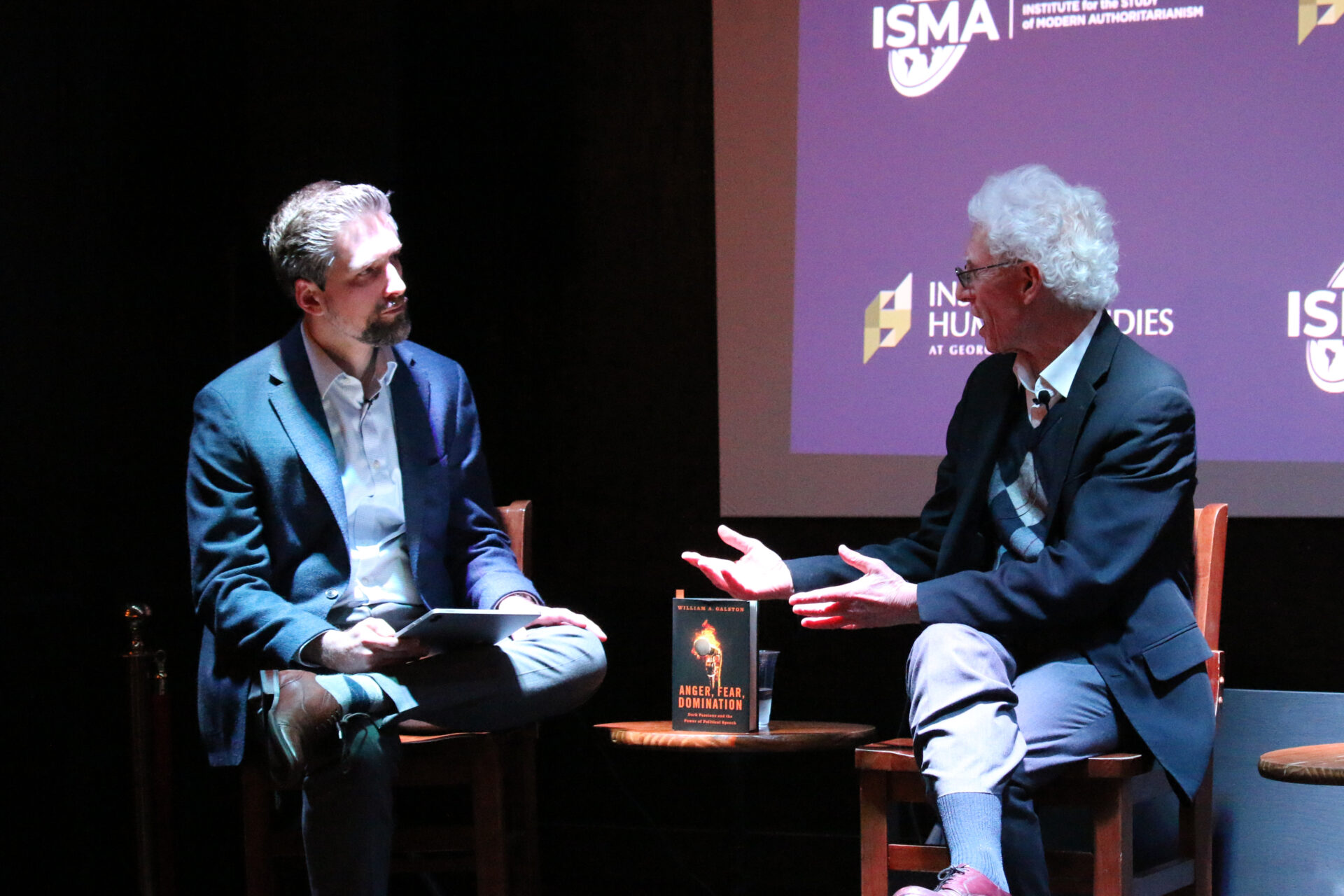In Case You Missed It: William Galston on the Dark Passions
How do free societies endure when their citizens are driven by dangerous passions? At a recent IHS event, William Galston, a political philosopher and Brookings Institution senior fellow, offered an unsettling answer: they don’t, or at least not automatically.
The Institute for Humane Studies and the Institute for the Study of Modern Authoritarianism (ISMA) hosted the conversation, where Galston joined scholars and friends of IHS to discuss his new book, Anger, Fear, and Domination: Dark Passions and the Power of Political Speech.
Remembering Liberalism’s Realism
 In the discussion, Galston argued that modern liberalism became vulnerable to demagoguery when it abandoned its founders’ realism about human nature for “sunny anthropology”—a belief that we are largely rational animals, that human progress is inevitable, and that our darker emotions would simply fade. That optimism, he warns, left democracies unprepared for demagogues who weaponize resentment and turn it into collective rage.
In the discussion, Galston argued that modern liberalism became vulnerable to demagoguery when it abandoned its founders’ realism about human nature for “sunny anthropology”—a belief that we are largely rational animals, that human progress is inevitable, and that our darker emotions would simply fade. That optimism, he warns, left democracies unprepared for demagogues who weaponize resentment and turn it into collective rage.
As Galston reminds us, the intellectual founders of liberal democracy—thinkers like Hobbes and Madison—never believed human beings were purely rational. They understood that anger, fear, humiliation, and the desire to dominate were permanent parts of human nature. Liberal institutions, in their view, were designed to contain passions that could never be erased.
Galston also highlighted the delicate balance between institutions and political rhetoric. Institutions can uphold freedom, but only if leaders use their words to temper, not inflame. Responsible political speech, he suggests, allows citizens to feel heard without being mobilized toward hatred.
Hope in Lighter Passions
Despite the pitfalls of human nature, Galston still sees promise in what he calls the “lighter passions”—our shared longing for peace, respect, and mutual understanding. He perceives, even now, a public weariness with constant conflict and a quiet readiness for reconciliation.
For those who believe, as IHS does, that liberal democracy thrives when citizens learn to speak with both courage and restraint, Galston’s work offers both a warning and an invitation. It reminds us that the preservation of liberty is not automatic; it depends on our ability to understand the passions that move us, and to meet them with empathy, persuasion, and moral clarity.
Watch some of the conversation with William Galston in the video below:
